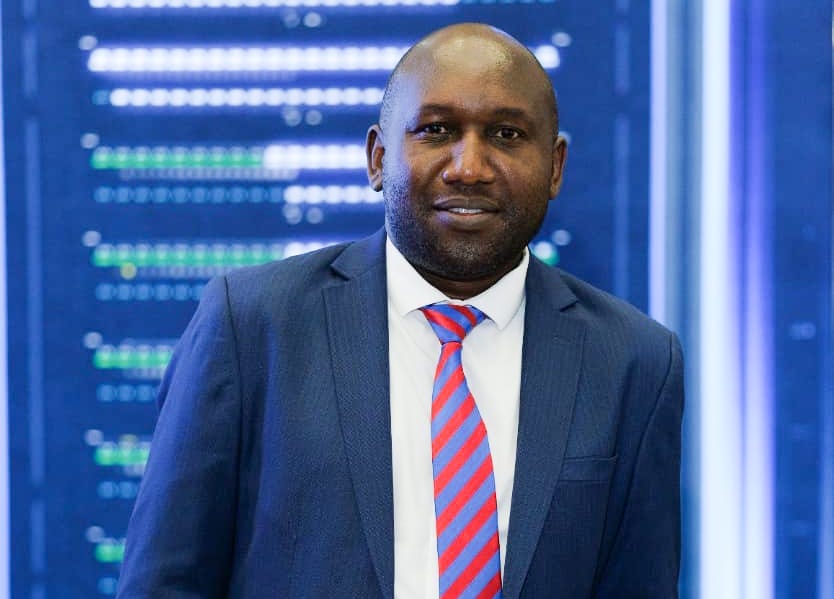[Interview] Dan Kwach, Managing Director, Africa Data Centres: Africa is on the brink of a data centre boom

Dan Kwach is currently the Managing Director – East Africa Region at Africa Data Centres. His role is to lead, direct and execute the sales strategy for the Africa Data Centres’ business in the East Africa region.
He’s responsible for directing the business to achieve maximum return on invested capital, as well as for all sales operations in compliance with goals, policies and objectives established by the Chief Executive Officer and the Board of Directors. He is also tasked with driving financial growth aligned to key business objectives, delivering profitable sales as well as market share by achieving revenue targets.
Africa Data Centres is the continent’s largest network of interconnected, carrier- and cloud-neutral data centre facilities. Tell us more about what ADC does.
Firstly, Africa Data Centres has a pan-African footprint, with facilities located across the continent’s major regional business and trade hubs. These locations are rapidly emerging as epicentres for public and private cloud hosting, attracting both multinationals and the largest African enterprises. We also offer International expertise, bringing global skills and expertise to all markets in which we operate, and our exceptionally experienced team has the experience and knowledge to provide only the best support. We are both carrier and cloud-neutral and have become the primary choice for international cloud and content providers, which ensures that our facilities are equipped no matter what network or cloud onramp your business requires.
Similarly, we are fully interconnected, with more than 50 leading carriers having their home, in our facilities, as do major internet exchanges, including the Johannesburg Internet Exchange (JINX), Cape Town Internet Exchange (CINX) and Kenya Internet Exchange Point (KIXP). Our data centres are designed, built and operated to the highest standards demanded by today’s leading cloud providers, carriers and enterprises – providing our customers with peace of mind, regardless of the scale of requirement. Finally, we employ the most robust security, to ensure the physical security of data and transactional computer processing remains a key priority from the physical layer up. Onsite security is boosted through multiple layers, and we employ a combination of physical security, biometric access control and CCTV systems. In addition, we are ISO 27001 certified and PCI DSS compliant.
There’s an increasing demand for data centres across Africa as internet penetration continues to increase. What does the future of the data centre market look like in Africa?
Africa is on the brink of a data centre boom as internet penetration rates rise and the continent begins to play catch-up with its international counterparts. At the moment, Africa accounts for less than 1% of the world’s co-location data centre supply, with South Africa making up the bulk of Africa’s capacity. However, more and more customers in Africa are using data centres to access public cloud-based services from hosts such as AWS, Google and Microsoft, and we expect to see a significant wave of data centre investments (including our own) materialise across Africa, with regional economic powerhouses such as South Africa, Kenya, and Nigeria at the vanguard of this. Other markets of importance include Ghana and Morocco, which are also attracting international investment.
What is driving this demand and growth?
This growth is being driven in part by advances in connectivity and data consumption, especially as smartphone penetration grows on the continent. Similarly, as broadband penetration increases, download speeds are also rising rapidly, which in turn, is boosting data consumption. Undersea cables too, have dramatically increased broadband capacity, which is crucial to the success of local data centres. Add to this the increasing adoption of cloud services, which means more organisations are migrating their data and processes off-premise and into hosted and other third-party data centres.
Finally, the worldwide move towards hosting data closer to where it is ultimately consumed, fuelled by data protection regulations, issues of data residency and sovereignty, and the need to lower latency to enable better content streaming and other functions, is driving in the region.
For the time being, Africa accounts for less than 1% of the world’s co-location data centre supply, with South Africa accounting for the bulk of the continent’s capacity. Should we expect a substantial wave of data centre investments to materialise across the continent this year from players like you and why?
We can only speak for ourselves, but towards the end of last year, we announced the greatest expansion plans the continent has ever seen, which will see Africa Data Centres building a slew of hyper-scale data centres across Africa, including the top five data centre markets in Africa, which are South Africa, Nigeria, Kenya, Morocco and Egypt. We have set aside $500m to allow us to more than double our already substantial footprint in Africa, which will boost digital transformation and help Africa realise its digital transformation goals. These plans highlight our commitment to accelerating digital transformation in Africa, and growing our data centres footprint is a critical element when it comes to delivering on our vision of a digitally connected future for Africa and its citizens.
In February this year, a report from The African Data Centres Association (ADCA) and Xalam Analytic revealed that Africa needs 1000MW and 700 facilities to meet growing demand and bring the rest of the continent onto level terms with the capacity and density of South Africa’s claims. Is this really enough?
While the rest of the world has ageing populations, Africa’s population is only getting younger, and they have a hunger for all things digital and they want to do things differently. They all have smartphones, which is essentially like having a super computer in their pockets, and they are keen and willing to participate in our economy. While reports estimate these figures of 1000MW and 700 facilities, I believe we are underestimating the capacity we need. Africa is going to be the content where digital infrastructure will continue to grow, across every nation. Is this enough to meet Africa’s growing demands and bring us to a level playing field in terms of capacity and density? I don’t think so. If we have learned one thing from the past, it is that we have always underestimated the demand side when it comes to data centre capacity. We underestimated in Europe and Asia, and we are underestimating it in Africa too.
The pandemic has accelerated our use of digital channels, both as individuals and as businesses. Are African data centres really ready for these digital demands?
Africa Data Centres is 100% ready.
Based on these digital demands, how do we build a future-ready data centre in Africa?
This goes back to the question of what we do. Our facilities are built with the digital future in mind and are fully future-ready, and able to handle Africa’s most exacting demands.
What future plans does ADC have for the Kenyan or African market in general?
I have discussed our expansion plans in general above. For Kenya, we recently announced we were expanding in Nairobi, and have begun building a second data centre of up to 20MW of IT load. We are also in the process of securing land for a third facility. The two new Kenya facilities are part of our greater expansion plans. Kenya is one of the top data centre markets in Africa and is widely viewed as the gateway to the East African region. There has been a significant increase in the adoption of digital services, and the move from on-premises to colocation and managed facilities will spearhead data centre development in the years to come.
Africa Data Centres is committed to uplifting the region by providing world-class access to data centres and networks, ushering in the age of hyper-scale to East Africa, to enable established businesses and entrepreneurs to thrive in today’s digital world.
Follow us on Telegram, Twitter, Facebook, or subscribe to our weekly newsletter to ensure you don’t miss out on any future updates. Send tips to info@techtrendske.co.ke.



2 Comments